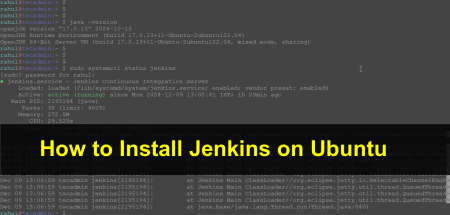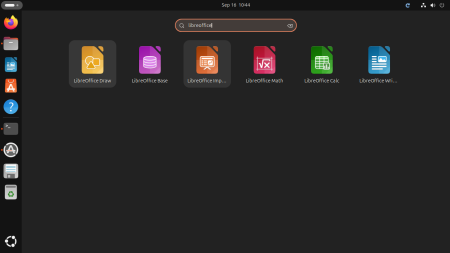Thanks to Wandisco Team, which is maintaining the Debian packages for latest subversion versions. This article will help you to Install Subversion 1.9 (SVN) on Ubuntu and Debian systems.
1. Setup Apt Repository
First you need to configure apt repository in your system. Use the following commands to add repository on your Ubuntu and Debian systems.
For Ubuntu Systems:-
$ sudo sh -c 'echo "deb http://opensource.wandisco.com/ubuntu `lsb_release -cs` svn19" >> /etc/apt/sources.list.d/subversion19.list' $ sudo wget -q http://opensource.wandisco.com/wandisco-debian.gpg -O- | sudo apt-key add - $ sudo apt-get update
For Debian Systems:-
$ sudo sh -c 'echo "deb http://opensource.wandisco.com/debian `lsb_release -cs` svn19" >> /etc/apt/sources.list.d/subversion19.list' $ sudo wget -q http://opensource.wandisco.com/wandisco-debian.gpg -O- | sudo apt-key add - $ sudo apt-get update
2. Install Subversion 1.9 Package
If you have older version installed on your system. You may face some conflict issues. So first remove existing packages from system to avoid any conflicts.
$ sudo apt-get remove subversion
Now install latest available Subversion package using yum command line package manager utility.
$ sudo apt-get install subversion
3. Verify Subversion Version
At this stage you have successfully install Subversion client on your system. Lets use following command to verify version of svn client.
#svn --version svn, version1.9.3 (r1718519) compiled Dec 9 2015, 12:45:52 on x86_64-unknown-linux-gnu Copyright (C) 2015 The Apache Software Foundation. This software consists of contributions made by many people; see the NOTICE file for more information. Subversion is open source software, see http://subversion.apache.org/ The following repository access (RA) modules are available: * ra_svn : Module for accessing a repository using the svn network protocol. - with Cyrus SASL authentication - handles 'svn' scheme * ra_local : Module for accessing a repository on local disk. - handles 'file' scheme * ra_serf : Module for accessing a repository via WebDAV protocol using serf. - using serf 1.3.7 (compiled with 1.3.7) - handles 'http' scheme - handles 'https' scheme
References:
1. http://opensource.wandisco.com/




6 Comments
How to install svn 1.9 on debian buster?
Doing steps from the article installs again svn 1.10, but i want older version, 1.9
Install Subversion 1.11 on Ubuntu 18.04 requires some modifications:
1. Change svn19 to svn111
2. Add [trusted=yes] in sources list, otherwise `apt update` would block the source because the repository is considered to be insecure! Error message: “The following signatures couldn’t be verified because the public key is not available: NO_PUBKEY CF695E37665DCDCA
N: Updating from such a repository can’t be done securely, and is therefore disabled by default.”
So use this command on Ubuntu 18.04
`sudo sh -c ‘echo “deb [trusted=yes] http://opensource.wandisco.com/ubuntu `lsb_release -cs` svn111″ >> /etc/apt/sources.list.d/subversion111.list’`
will this work on raspberry pi?
I should have stated that these errors are when I run the ‘apt-get update’ command.
This doesn’t work for me on Ubuntu 15.10, I get these errors…
Err http://opensource.wandisco.com wily/svn19 amd64 Packages
404 Not Found
Err http://opensource.wandisco.com wily/svn19 i386 Packages
404 Not Found
W: Failed to fetch http://opensource.wandisco.com/ubuntu/dists/wily/svn19/binary-amd64/Packages 404 Not Found
W: Failed to fetch http://opensource.wandisco.com/ubuntu/dists/wily/svn19/binary-i386/Packages 404 Not Found
Be aware of which repository you are adding.
Before adding repository check what distributions are available in http://opensource.wandisco.com/ubuntu/dists/
I have Linux Mint 17.3 on machine so `lb_release -cs` returned “rosa” distribution, which does not exist, had to change it to “trusty”‘.